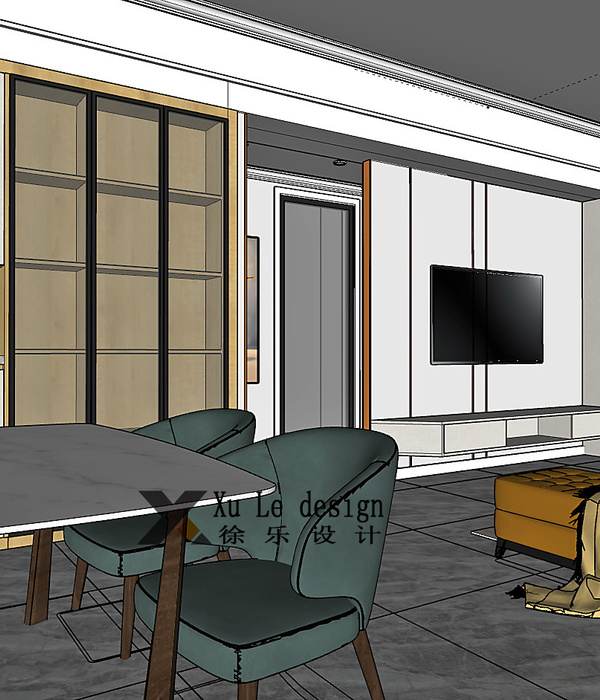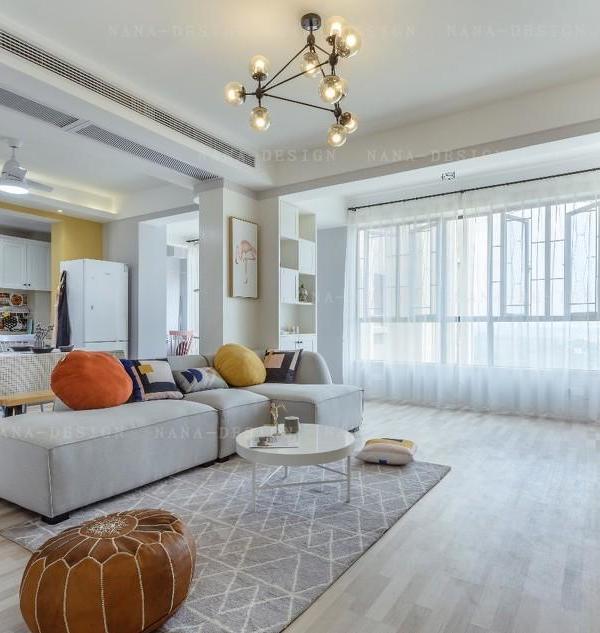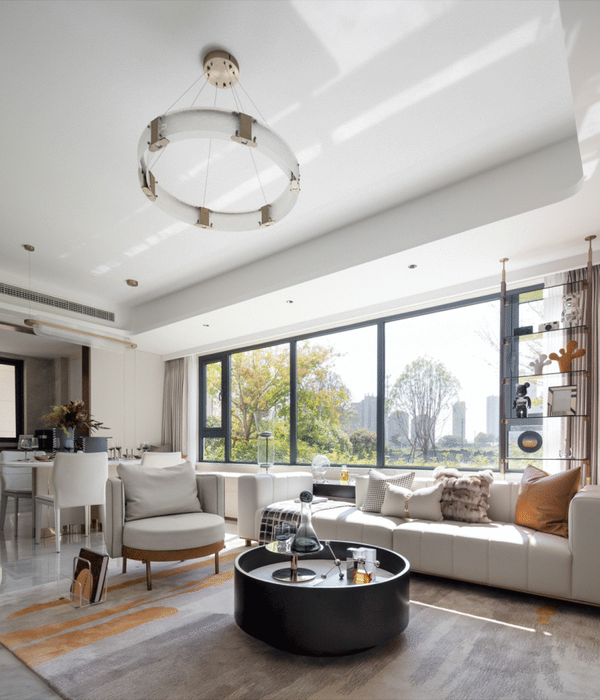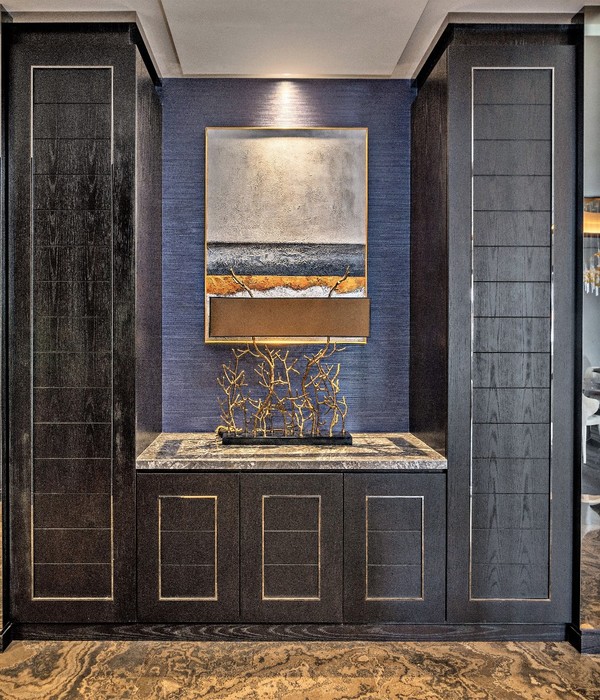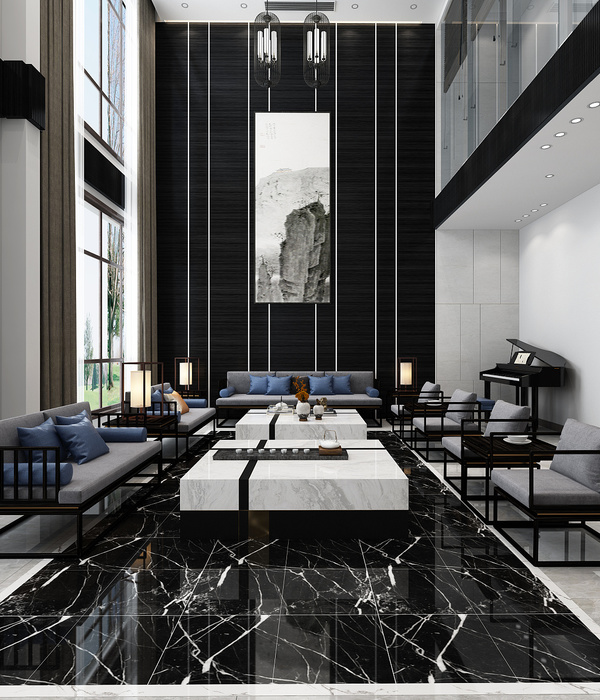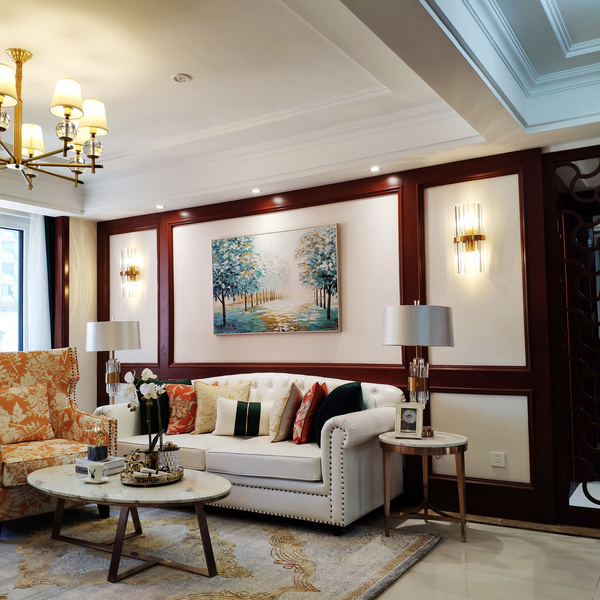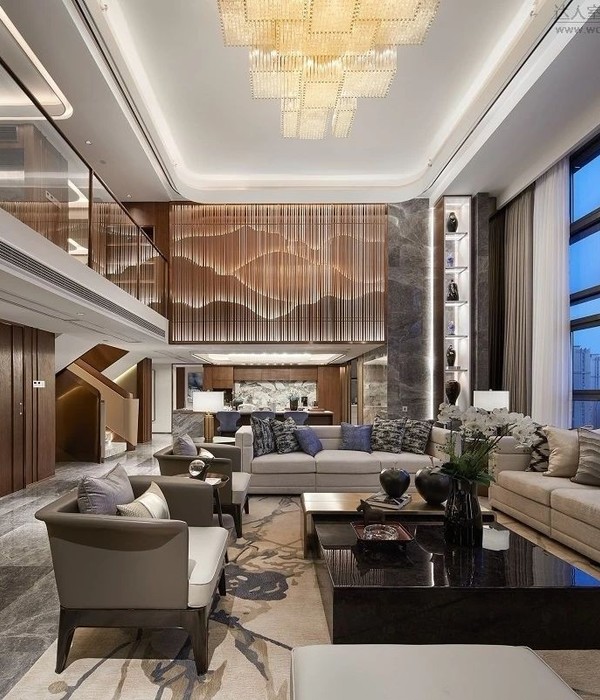© Sergio Pirrone
c.塞尔吉奥·皮尔龙
架构师提供的文本描述。时间被困在太空中,而空间却失去了时间。
Text description provided by the architects. Time is trapped in space, yet space has lost time.
时间和空间不可能单独存在,人类也是如此。
Time and space can’t exist alone so does humans.
© Sergio Pirrone
c.塞尔吉奥·皮尔龙
墙壁,最具结构和建筑元素,被用来定义一个生活空间。墙壁跨越空间,创造出不相连或支离破碎的地方,同时提供经验和情况,在按时间顺序排列的环境下重塑。时间点可以解释为通过改变曲面和轴交点的组合来整合时间和空间的度量。在这里,架构墙不是一个断开或分割的工具,而是并发空间和连续时间的框架,以支持它们的集成和延续。对于现代社会中家庭成员之间的这种分离或家庭成员的解体,我们把责任归咎于断壁构图,试图重建一种增强人际关系的空间结构,以恢复家庭间的沟通。
Walls, the most structural and architectural element, are used to define a living space. Walls run across spaces and create disconnected or fragmented places while providing experiences and situations reshaped under a chronotope-ic setting. Chronotope can be explained as a measure to integrate time and space through a combination of varying surfaces and an intersection of axis. Here architectural walls are not working as a disconnecting or dividing tool but rather as a frame for concurrent spaces and continuous time to support their integration and continuation. For such separation among family members or its dissolution in modern society, we blame severed wall compositions and so try to reconstruct a spatial structure enhancing human relationships to restore communication in families.
© Sergio Pirrone
c.塞尔吉奥·皮尔龙
家庭成员之间的沟通
Communication among family members
我们坚信建筑能给人类生活带来变化,所以我们建议建造这座墙屋。恢复空间之间的交流被认为是一种药丸,提高家庭在他们的生活空间的可用性和理解。这就像提供了一个可能性框架,使家庭能够从被动的主体转变为积极的创造者,并分享新的可能的相互占据空间的方式。墙屋的目的是建立一个结构,在生活轨迹上实现隐私和通信的自然融合,同时通过自身清晰地投射出老年父母、成年夫妇和两个姐妹的个人身份。
With a faith that architecture can bring changes in human life, we are proposing this Wallhouse. Restoration of communication between spaces is believed to work as a pill increasing usability and understanding of families on their living spaces. It’s like offering a framework of possibility which enables families to transform from a passive subject into an active creator and to share new possible ways of occupying spaces each other. The purpose of Wallhouse is to build a structure achieving a natural integration of privacy and communication along the life trajectory while projecting clearly the individual identities of the aged parents, adult couple and two sisters through itself.
© Sergio Pirrone
c.塞尔吉奥·皮尔龙
穿墙空间并置
The juxtaposition of wall-penetrating spaces
贯穿墙壁的空间,包括餐厅和厨房的盒子空间,儿童房和老父母室,以及一对夫妇的主卧室,都位于不同的位置。一楼的起居区,二楼的书房,一楼的半室外庭院,这些穿墙空间连接在一起,放在中间,它们构成了一个分割而完整的居住空间。通过插入一个媒介空间系统和打开一个对角线视图,我们试图实现视觉传达和空间扩展,共同提示公共生活空间(居住空间、书房和庭院)与私人居住空间(卧室)之间的联系。
The wall-penetrating spaces including box spaces for a dining area and kitchen, a children’s room and an aged parents room as well as a master bedroom for the couple are positioned in different locations. And the living area on the 1st floor, the study on the 2nd floor and the semi-outdoor courtyard on the 1st floor in which those wall-penetrating spaces are being joined together are placed in the center, and they compose a divided yet integrated living space. Through inserting a medium space system and opening a diagonal view, we are attempting to achieve visual communication and spatial expansion which together suggest a clue of connection between communal living spaces (the living space, study and courtyard) and private living spaces (bedrooms).
内/外砖墙的渗透
The penetration of interior/exterior brick walls
红砖外墙的材料不仅是装饰的外包层,而且是结构体系的基座。这种物质流入内部,创造了一个空间,破坏了内部和外部的区别。因此,空间最终是属于内部的,同时也是属于外部的。毕竟,这是为了废除空间确定性,同时允许不分青红皂白的扩展性。穿过室内,砖墙变成了一系列的开口,定义了一个屋顶花园,并叙述了一个诗意的表现,把天景画到室内。
The material of the red brick exterior walls Is not just a decorative external cladding but a datum of a structural system. This material flows into the interior and creates a space which destroys the distinction between inside and outside. Therefore, the space ends up belonging to the inside and also to the outside at the same time. After all, this is to abolish spatial determinacy while enabling an indiscriminate expandability. Traversing the interior, the brick walls turn into a series of openings defining a rooftop garden and narrate a poetic expression by drawing the skyscape into the interior.
© Sergio Pirrone
c.塞尔吉奥·皮尔龙
© Sergio Pirrone
c.塞尔吉奥·皮尔龙
Architects UnSangDong Architects
Location Seongnam-si, South Korea
Category Houses
Design Jang Yoon Gyoo, Kim Mi Jung
Project Team Kim Min Kyun
Area 125.2 m2
Project Year 2016
Photographs Sergio Pirrone
Manufacturers Loading...
{{item.text_origin}}

